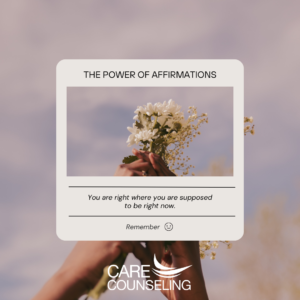The Power of Positive Affirmations
 Our minds are incredibly powerful, shaping our thoughts, emotions, and actions. The thoughts we consistently tell ourselves, known as self-talk, have a significant impact on our self-perception and overall well-being. Positive affirmations are a simple yet powerful tool that can help rewire our minds for success and unleash our full potential.
Our minds are incredibly powerful, shaping our thoughts, emotions, and actions. The thoughts we consistently tell ourselves, known as self-talk, have a significant impact on our self-perception and overall well-being. Positive affirmations are a simple yet powerful tool that can help rewire our minds for success and unleash our full potential.
Understanding Positive Affirmations
Positive affirmations are statements that focus on constructive and optimistic beliefs about us and our lives. They are designed to challenge and replace negative or limiting thoughts with positive, empowering ones. By repeating these affirmations regularly, we create new neural pathways in our brains, reinforcing positive thought patterns and gradually altering our mindset.
The Science Behind Positive Affirmations
The brain is a remarkable organ capable of reshaping itself through a phenomenon known as neuroplasticity. When we repeat positive affirmations consistently, we trigger the brain’s reward centers, releasing “feel-good” chemicals such as dopamine and serotonin. This process helps to build stronger neural connections associated with positivity and self-belief, leading to a shift in our overall outlook on life.
Benefits of Positive Affirmations
- Boosting Self-Confidence
Positive affirmations work to challenge self-doubt and instill a sense of self-confidence. By affirming our abilities and strengths, we build a strong foundation of belief in ourselves, empowering us to take on challenges with determination and resilience.
- Overcoming Limiting Beliefs
Many of us harbor limiting beliefs that hinder our progress and success. Positive affirmations help us confront and challenge these beliefs by providing evidence to the contrary. As we repeat affirmations that reflect our desired outcomes, we begin to break free from self-imposed limitations.
- Enhancing Resilience
Life is full of ups and downs, and how we perceive challenges greatly impacts our ability to bounce back from setbacks. Positive affirmations foster a resilient mindset, helping us view obstacles as opportunities for growth and learning.
- Encouraging a Growth Mindset
A growth mindset is the belief that our abilities and intelligence can be developed through effort and learning. Positive affirmations cultivate this mindset by reinforcing the notion that we can continuously improve and evolve.
- Managing Stress and Anxiety
Positive affirmations promote a sense of inner calm and peace, reducing stress and anxiety levels. When faced with difficult situations, affirmations serve as a source of comfort and reassurance, helping us maintain a positive outlook.
- Improving Focus and Goal setting
Affirmations can enhance our ability to concentrate on our goals and aspirations. By regularly reaffirming our objectives, we align our thoughts and actions with our desired outcomes.
- Increasing Optimism
A positive mindset attracts positivity into our lives. Positive affirmations help us cultivate an optimistic outlook, allowing us to approach challenges with a solutions-oriented mindset.
How to Create and Use Positive Affirmations
- Identify Areas for Improvement: Reflect on areas of your life where you would like to experience positive change. These could be related to self-confidence, career, relationships, health, or personal growth.
- Be Specific and Personal: Craft affirmations that are specific to your goals and aspirations. Make them personal by using “I” statements to internalize the affirmation.
- Keep it Positive and Present-Tense: Phrase affirmations in positive terms and use the present tense as if the desired outcome is already happening. For example, “I am confident and capable in achieving my goals.”
- Make Them Believable: Ensure that your affirmations feel attainable and believable. If they are too far-fetched, it may be challenging to fully embrace them.
- Repeat Daily: Consistency is key. Repeat your affirmations daily, preferably in the morning or before bedtime. Repetition helps to reinforce the positive beliefs in your subconscious mind.
- Visualization: Combine your affirmations with visualization techniques. Imagine yourself achieving your goals and experiencing the positive outcomes you desire.
- Practice Gratitude: Gratitude enhances the power of positive affirmations. Express gratitude for the positive changes that are already present in your life and for those that are yet to come.
Positive affirmations have the power to rewire our minds, reshape our self-perception, and pave the way for success. By challenging limiting beliefs and fostering a positive outlook, we can boost our self-confidence, resilience, and overall well-being. Embrace the practice of positive affirmations as a daily ritual, and witness how your thoughts, emotions, and actions align with the limitless possibilities that lie ahead. As you sow the seeds of positivity and self-belief, you will reap the bountiful harvest of success and fulfillment in all aspects of your life.
Maintaining Individuality in a relationship: Balancing Independence and Togetherness



























